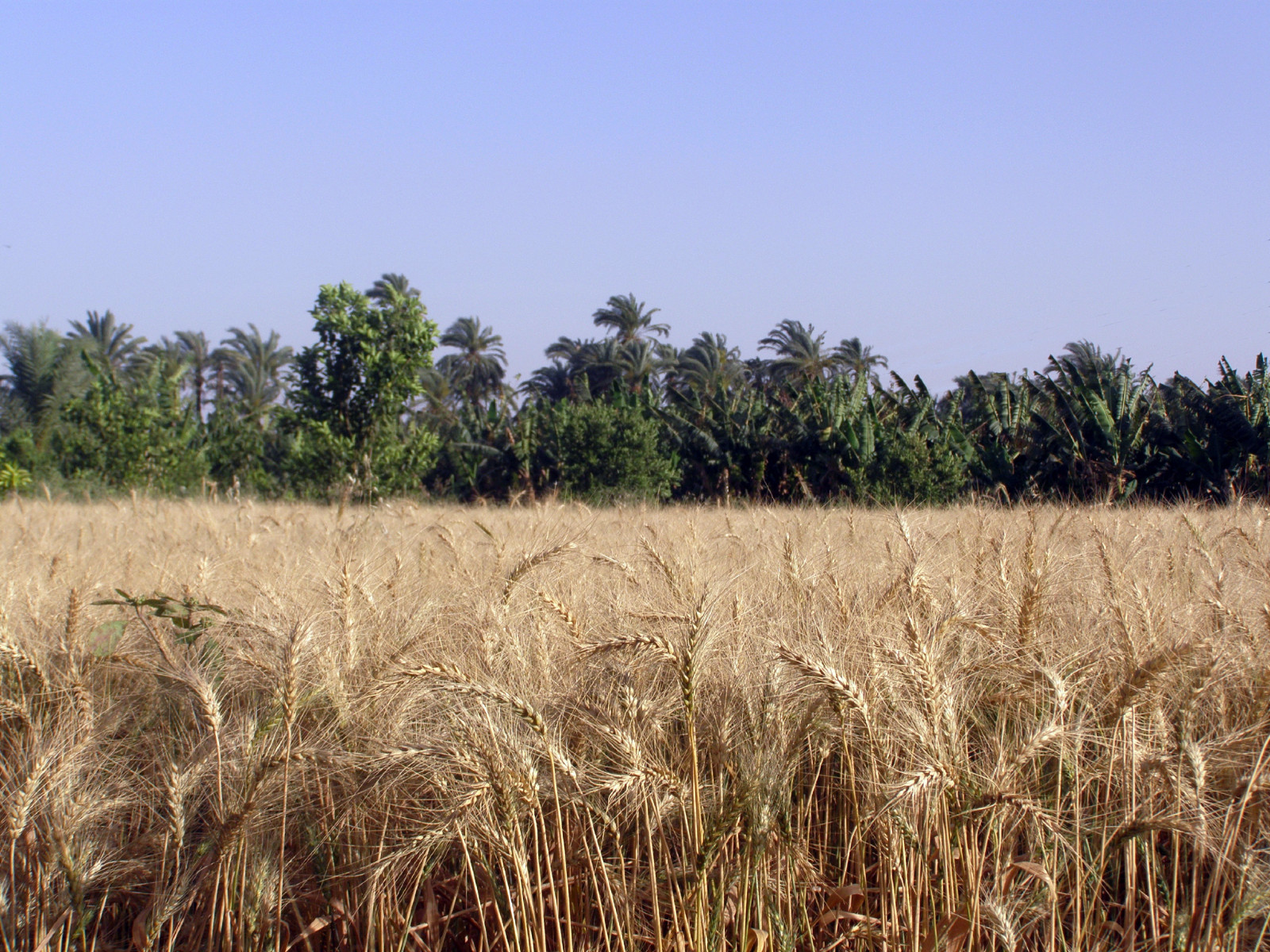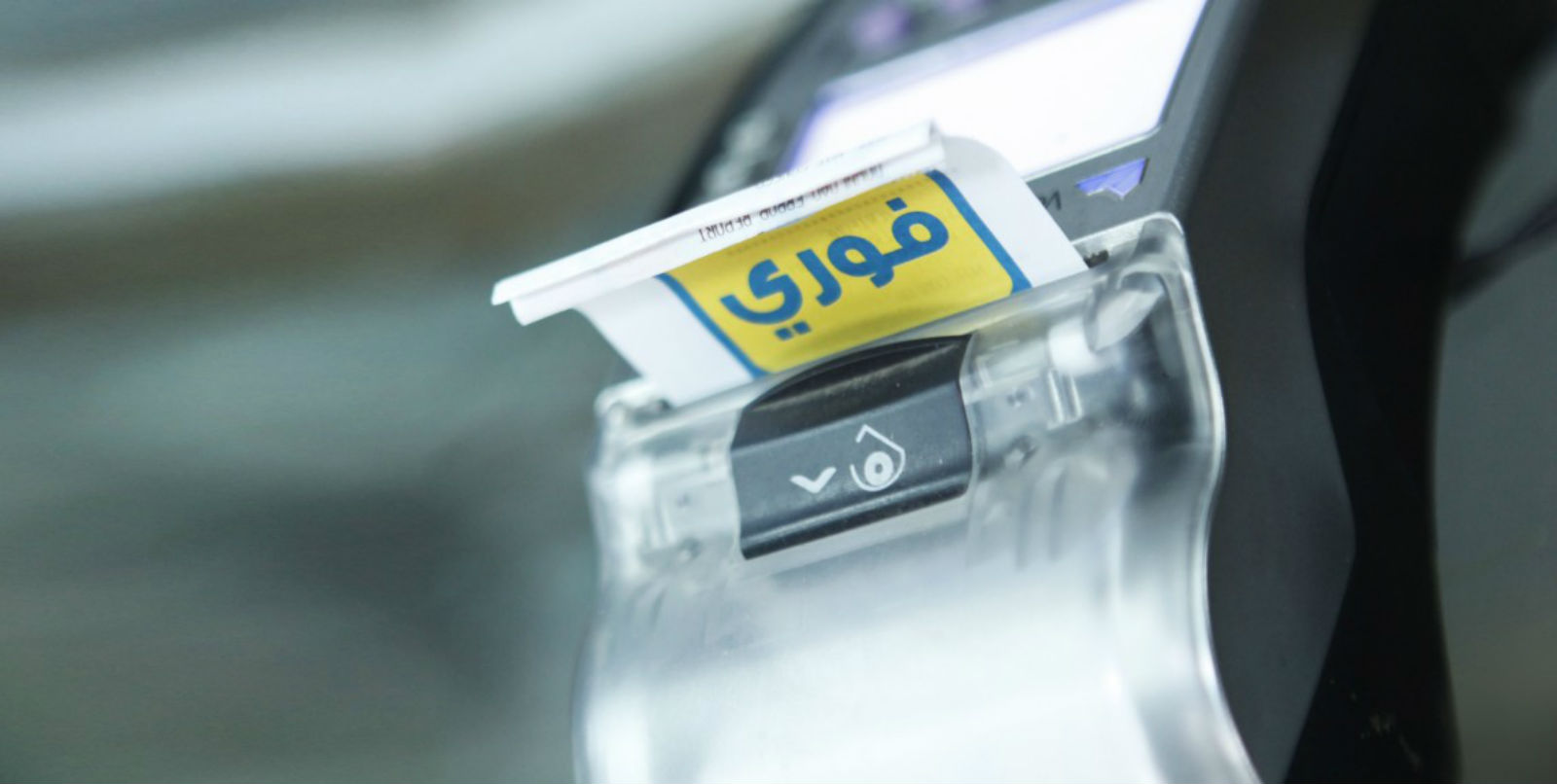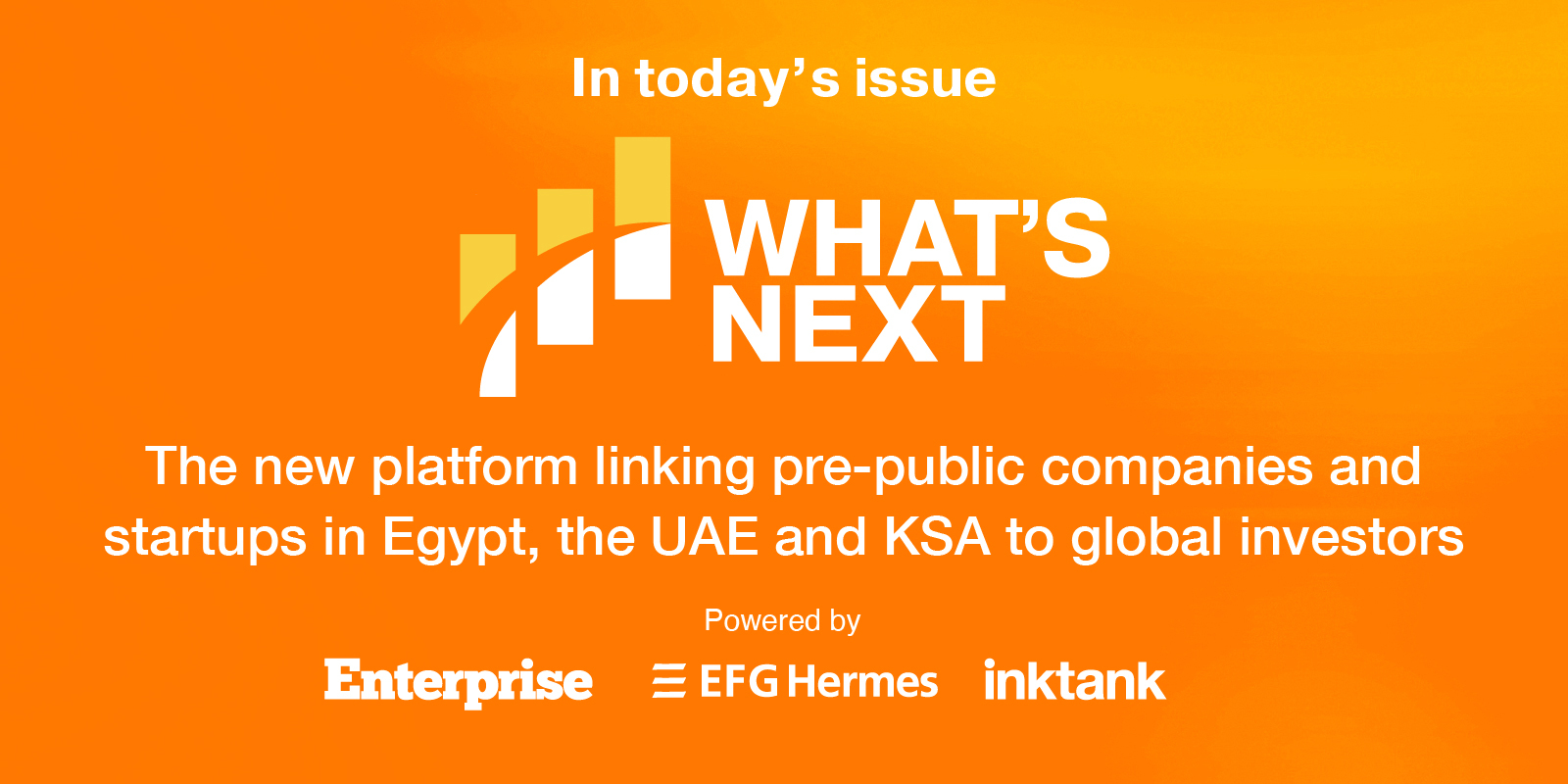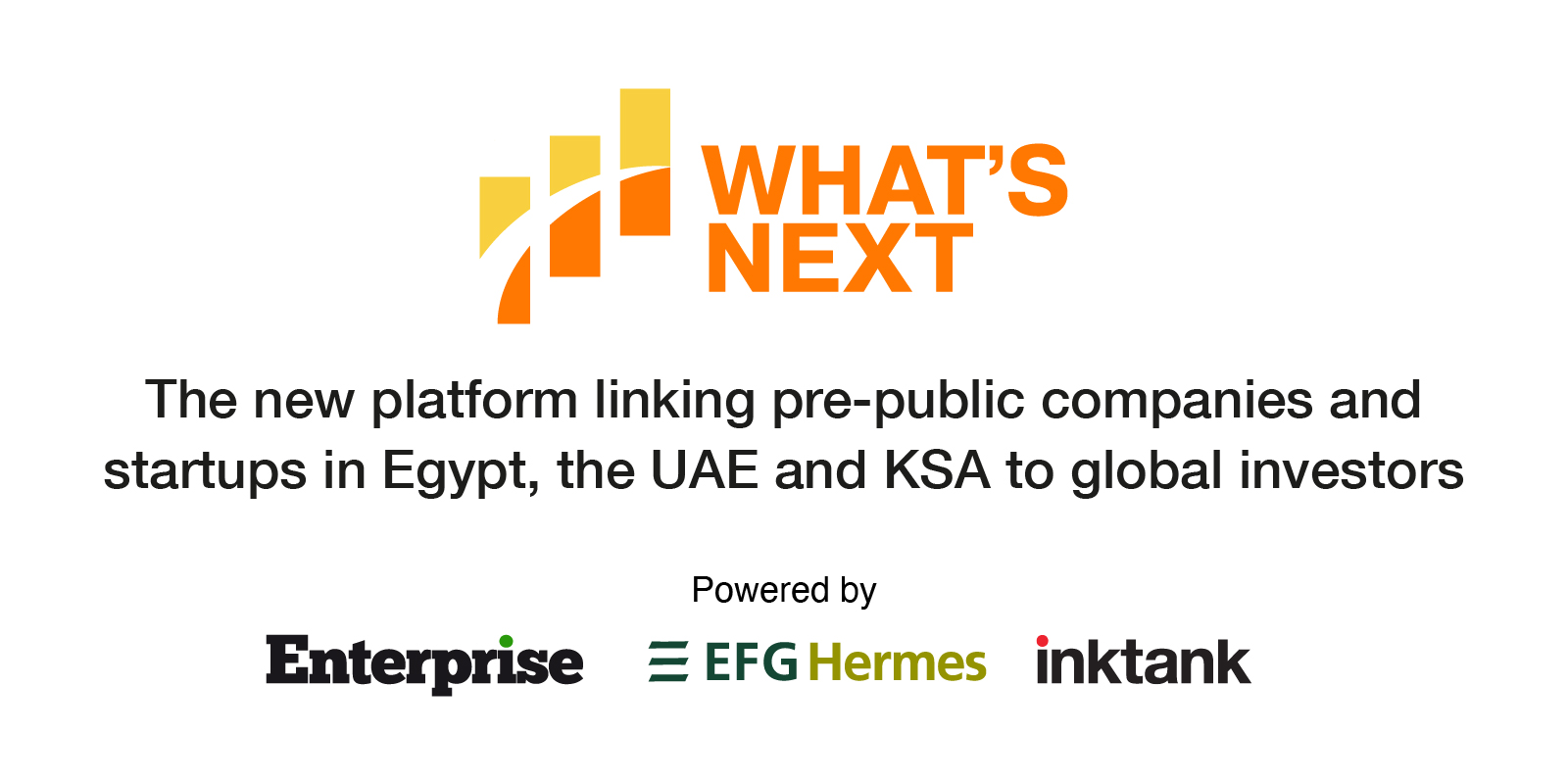- Most analysts we polled think the CBE will leave rates unchanged this week. (Economy)
- KSA Crown Prince Mohammed bin Salman is paying us a visit as the region gears up for Biden’s Saudi visit. (What We’re Tracking Today)
- Russian wheat imports were up 84% in March-May despite the war (Commodities)
- Has the down round era arrived on our shores? (What’s Next)
- Next fiscal year’s budget and development plan are up for debate in the House starting today. (What We’re Tracking Today)
- Fawry grew all its revenue streams in 1Q2022. (Earnings)
- KSA VC Khwarizmi hires BasharSoft’s Ameer Sherif as a partner. (Moves)
- CEOs everywhere think we’re heading for recession next year + EM debt is seriously struggling. (Planet Finance)

Sunday, 19 June 2022
AM — CBE likely to leave rates unchanged at Thursday’s policy meeting -Analyst Poll
TL;DR
WHAT WE’RE TRACKING TODAY
It’s shaping up to be a big week for visits from neighbors + all things diplomacy, ladies and gentlemen. We may well host a summit with Bahrain and Jordan today after President Abdel Fattah El Sisi met with Bahrain’s king over the weekend. Saudi Crown Prince Mohammed bin Salman could land in Egypt Monday; and we may sign a long-awaited agreement to send our gas to Lebanon the day after that. In other words, this looks to be the start of a flurry of friendly activity in the neighborhood as the KSA gears up to welcome US President Joe Biden to this neck of the woods next month.
Staying with diplomacy, we’ve started receiving funding from the ITFC: The International Islamic Trade Finance Corporation (ITFC) has started dispersing the USD 3 bn credit extension agreed earlier this month, which will help us finance our food and energy imports, ITFC head Hani Sonbol said during the Afreximbank annual meetings over the weekend, according to Reuters. The ITFC recently raised the ceiling for its financing agreement with Egypt to USD 6 bn from USD 3 bn to help us meet our food and energy needs.
And there’s more support in the pipeline: Sonbol said that the corporation will sign another financing agreement with Egypt as soon as this one is over, without disclosing a timeframe. “We are here to support,” he said.
PSA #1: Goodbye (hopefully forever), covid entry paperwork: The government has lifted all covid-related entry restrictions for both Egyptian nationals and foreigners traveling to Egypt, according to a cabinet statement. Travelers to Egypt had been required to present a vaccination certificate or a negative PCR test taken at least 72 hours before departure. The decision came into effect on Friday, sources from the health ministry confirmed to Enterprise. Abdel Fattah Al Assi, Assistant Minister of Tourism and Antiquities, told Ala Mas’ouleety (watch, runtime: 13:17) that the disinfection of hotel facilities would continue despite the lifting of restrictions.
PSA #2- You can’t get into the KSA on your Shengen / UK / US visa until after Hajj. Saudi Arabia has suspended until July 9 a rule allowing Egyptians with valid Schengen, US or UK travel visas to get tourist visas on arrival when visiting Saudi, EgyptAir announced in a statement, based on instructions from Saudi Arabia’s General Authority of Civil Aviation.
THE BIG STORY here at home: Most of the analysts we surveyed in our regular interest rate poll think the Central Bank of Egypt (CBE) will leave rates just as they are when its monetary policy committee meets this Thursday.
Meanwhile, our imports of Russian wheat rose in recent months despite the disruptions brought on by the war in Ukraine.
THE BIG STORY ABROAD is trouble in BTC-land: The business press is taking some (understandable) pleasure in splashing the latest tumult in the crypto markets across the front pages this morning. The meltdown in BTC that took a turn for the worse last week continued yesterday, as the flagship digital currency plunged below the USD 20k threshold to approach its lowest since the end of 2020. The digital token had fallen more than 5% in 24 hours to around USD 19,354 just after midnight local time, marking a record-breaking 12th consecutive daily decline, and at one point sank as low as USD 17.6k.
And it wasn’t just BTC: Ether fell below USD 1k yesterday to trade as low as USD 880.93. The crypto crash comes amid pressure on a wide range of what are considered riskier assets (including many types of equities), as global policy — led by the US Fed — tightens to tame surging inflation.
The crypto winter is getting ink from the Financial Times, Bloomberg, CNBC, and Reuters.
WHAT’S HAPPENING TODAY-
Look out for a tripartite summit between Egypt, Jordan and Bahrain today, Kelma Akhira’s Lamees El Hadidi said last night (watch, runtime: 1:06). Jordan’s King Abdullah will land in Egypt today ahead of the summit, according to Lamees. Bahrain’s King Hamad bin Isa Al Khalifa is already in Egypt, arriving yesterday in Sharm El Sheikh where he held talks with President Abdel Fattah El Sisi (watch, runtime: 3:04).
On the El Sisi-Al Khalifa talks: The pair discussed upping economic and political coordination, according to an Ittihadiya statement. They also welcomed an upcoming summit hosted by Saudi Arabia between the US, GCC countries, Egypt, Jordan, and Iraq in July (prompted by US President Joe Biden’s visit to the KSA).
MbS to land in Egypt on Monday: Saudi Crown Prince Mohammed bin Salman will visit Egypt on Monday as part of a three-day tour that will also take in Jordan and Turkey, Saudi newspaper Okaz reported. Two diplomatic sources told Reuters yesterday that the Crown Prince will meet President Abdel Fattah El Sisi for talks on the impact of the crisis in Ukraine in the region and preparations related to Biden’s trip to Saudi Arabia in July.
And then on to Turkey: President Recep Tayyip Erdogan told reporters on Friday that MbS will visit Turkey on Wednesday, AFP reported, in the biggest sign so far that the two countries are looking to bridge the rift between them. Ankara is expected to lobby for Saudi funding to shore up its finances amid soaring inflation, the newswire reports.
A final agreement to ship natural gas from Egypt to Lebanon via the Arab Gas Pipeline could be signed this Tuesday, Lebanese Energy Minister Walid Fayad told Reuters. Under a US-backed plan hatched last year to mitigate Lebanon’s acute energy crisis, Egypt would ship 60-65 mn cbf / d of natural gas to the north of the country via a pipeline that transits Jordan and Syria.
We could still be waiting several weeks before we can turn on the spigot: The US still needs to determine whether the plan would violate its sanctions on Syria that penalize countries from doing business with the Assad government. US energy envoy Amos Hochstein said last week that Washington was waiting on Egypt and Lebanon to come to a final agreement before assessing whether it breaches the sanctions.
HAPPENING THIS WEEK-
IT’S BUDGET WEEK IN THE HOUSE- MPs will begin discussing the draft 2022-2023 budget and the development plan in the House of Representatives today. Representatives will debate for three days with a final vote likely coming on Tuesday, House Budget and Planning Committee Chairman Fakhri El Fiqi said last week.
The Road to COP27: As the clock ticks down towards the all-important COP27 climate conference, Narrative PR is hosting a series of web talks with the organizers, leaders and policymakers shaping the agenda in Sharm El Sheikh this November.
Up first: Mahmoud Mohieldin, the special envoy of the UN Secretary General, executive director at the IMF, the UN Climate Change High-Level Champion for Egypt and one of the leading figures building support for COP27’s agenda. His role, as he tells it, is to rally support and the participation of leading financial institutions, NGOs, universities, and civil society groups.
The voice of the global South: Part of why it was important for Egypt to host this year’s conference is to stress the issues of developing nations — who despite being among the least contributors to climate change, are asked to take on costs beyond their fiscal means, he notes.
COP of implementation: Ultimately, we have strayed collectively from the goals set out in the Paris Climate Accords, with financing pledges going unmet and targets going unfulfilled. This COP27 will focus on reversing that, Mohieldin said.
You can watch his brief explainer on the road to COP27 here (watch, runtime: 06:50).
CORRECTED ON 19 June 2022
Dr Mahmoud Moheildin is is the special envoy of the UN Secretary General and Executive Director at the International Monetary Fund, in addition to being the UN Climate Change High-Level Champion for Egypt. He is no longer the World Bank Group’s senior vice president for the 2030 Development Agenda, as a previous version of the story incorrectly stated.
SMART POLICY- We have joined the Global Methane Pledge: That’s according to President Abdel Fattah El Sisi, who made the announcement during a virtual address to the Major Economies Forum on Energy and Climate Leaders at the weekend, according to Ittihadiya. The pledge commits Egypt to reduce methane emissions by at least 30% of 2020 levels by the end of the decade. Egypt declined to sign onto the pledge at last year’s COP26 in Glasgow.
|
MARKET WATCH-
Rising interest rates trigger the worst week for global stocks since March 2020: Global stocks suffered their worst week since the covid-induced market crash last week as investors worried about the impact of rising interest rates on the global economy, according to the Financial Times. The FTSE All-World index lost 5.6% during the five-day period, its heaviest weekly loss since March 2020. This came during a week where central banks around the world doubled down on their missions to quell soaring inflation, with the US Federal Reserve accelerating its tightening cycle with a 75-bps rate hike, a further 25-bps increase in the UK, and the Swiss central bank raising rates for the first time since 2007.
Gas rationing could soon be the new reality for Europe: More EU countries are mulling government controls for gas consumption and distribution as Russia continues cutting gas supplies to the continent, Bloomberg reports. Italy could trigger an emergency gas rationing plan as soon as next week if Russian oil giant Gazprom — which cut its supplies to the country by about 15% last week — does not restore its supplies.
And that’s bad news for climate goals: The plan could see Italy move to dirtier fossil fuels like coal to shore up its supplies and limit industrial consumption. Gazprom has also cut flows through the key Nord Stream pipeline by 60%, hitting Germany’s gas supply due to what it said was a malfunction at one of the pumping stations.
WTO meeting concludes with at least some agreements on global trade: Over a hundred trade ministers reached agreements on fisheries, vaccine manufacturing and food security at the World Trade Organization after days of tough negotiations, Bloomberg reports. The agreements included an accord to limit subsidies for illegal and unregulated fishing; and waivers of some intellectual property protections to allow developing countries to produce and export covid-19 vaccines — though the move was criticized by many for leaving out other crucial medical tools like tests and treatment, and doing little to help healthcare industries in developing countries. Finally, officials agreed to do more to plug food shortages in developing countries, though they made little concrete headway on reversing a recent wave of food protectionism.
CIRCLE YOUR CALENDAR-
The government’s fuel pricing committee will meet in the first week of July, before Eid, to decide on prices at the pump, Oil Minister Tarek El Molla confirmed to Kelma Akhira (watch, runtime: 2:13). The committee’s last quarterly meeting saw it raise fuel prices by around 3% amid a rise in global prices triggered by the war in Ukraine.
The pricing mechanism for gas for households and factories is not tied to global prices, El Molla said (watch, runtime: 6:40). We’re not likely to see any price increases on household gas in the immediate future, El Molla predicted.
Amcham AGM this week: Our friends over at Amcham will hold their annual general meeting on Monday 27 June at the St. Regis Cairo Hotel. Finance Minister Mohamed Maait will address the gathering.
Conferences coming up this week and next:
- The Egyptian Builders Forum takes place tomorrow at the JW Marriott Hotel Cairo.
- The Aswan Forum for Sustainable Peace and Development will take place in Cairo later this week on 21-22 June (Tuesday-Wednesday).
- The Big 5 Construct Egypt (pdf) construction industry exhibition runs from 25-27 June at the Egypt International Exhibition Center (EIEC) in Cairo.
Check out our full calendar on the web for a comprehensive listing of upcoming news events, national holidays and news triggers.
*** It’s What’s Next day: We have our weekly deep-dive into what makes and shapes pre-listed companies and startups in Egypt, the UAE and KSA, touching on investment trends, future sector insights and growth journeys.
In today’s issue: Are local startups about to see down rounds coming their way? Less than halfway into 2022, startups are finding themselves in a radically different environment than where they were this time last year: VCs are now tightening their belts as interest rates rise, tech assets sell off, and valuations come back down to earth. As a result, some startups are facing the very real prospect of down round financing and falling valuations. But what would down rounds really look like for local startups, and should they tread cautiously?
Experience the Bay Life Rentals: A new era of holiday magic provides a first-class selection of luxurious vacation rentals with a holistic luxury concierge service, expertly combining personalized hospitality with a refined local touch to transform your vacation into a one-of-a-kind experience. Book now: https://holidays.somabay.com/stayr/ or call +2016390.
POLL
CBE to leave rates on hold at 23 June meeting -POLL

The Central Bank of Egypt (CBE) is likely to leave interest rates unchanged this week despite rising inflation and accelerating global monetary tightening, according to our regular analyst poll. Five of eight analysts and economists surveyed by Enterprise see the Monetary Policy Committee (MPC) holding rates when it meets on Thursday.
Where do rates stand currently: The overnight deposit rate currently stands at 11.25%, and the lending rate is 12.25%, while the main operation and disc. rates are at 11.75%. The CBE has hiked rates by 300 bps since March in a bid to curb rising inflation and bring foreign investors back into the local market.
May’s inflation data was below expectations: “We don’t expect the CBE to deliver another rate hike at the next meeting because inflation in May was lower than expectations and it needs time to assess the impact of the last 200-bps hike,” said economist Mona Bedeir.
Policymakers may wait and see on inflation: Annual inflation hit a three-year high of 13.5% in May as rising global commodity prices and the devaluation of the EGP put upwards pressure on consumer prices, leaving it further outside of the central bank’s 7% (± 2%) target range. “The effect of raising interest rates will take time to fully reflect on inflation. We expect the central bank to keep interest rates unchanged,” said Alia Mamdouh, director of macro and strategy at Beltone Financial.
The central bank is going to need policy space if inflation does continue to rise: “The CBE also needs room to maneuver for the expected rise in inflation in the coming months,” Bedeir added.
Carry traders could be less of a consideration for policymakers: “The fear of foreign investors leaving the country has become less important as the bulk of these portfolio flows have already exited in the past few months,” said banking expert Hany Aboul Fotouh, who also expects the MPC to leave rates on hold. Egypt saw some USD 20 bn in capital outflows during the first five months of the year, Prime Minister Moustafa Madbouly said last month.
A rate hike at this juncture may do little to turn inflation-adjusted rates positive and restore the attractiveness of the carry trade due to the EM risk-off and the changed Moody’s outlook, Monette Doss, chief economist at HC Securities, wrote in a note. The rate on 12-month T-bills has risen only 90 bps since March despite the policy rate being 300 bps higher, she said.
Policymakers will have an eye on the current account deficit, which is likely to widen this year due to the weaker EGP, said James Swanston, MENA economist at Capital Economics, who sees the CBE raising rates by 100 bps. “[Higher commodity prices and a weaker EGP] will also push up Egypt’s import bill and cause the current account deficit to widen this year. Against this backdrop, policymakers at the CBE will continue to tighten monetary policy on Thursday,” he wrote in a note.
The contrarian view: “Although we acknowledge the costs of high interest rates on the fiscal front, we believe the CBE might prefer to act boldly … with another considerable rate hike that could be as much as 200 bps” said Esraa Ahmed, economist at Al Ahly Pharos.
Higher energy costs will factor: Arqaam is predicting a hike in the 150-200 bps range at the central bank’s next meeting, citing the need to keep a handle on the inflation arising from higher energy costs. Associate Director Noaman Khalid tells Enterprise that he sees the Madbouly cabinet move to restructure prices sometime in the second half of the year. Electricity prices for residential consumers will remain unchanged until at least the end of 2022, Prime Minister Moustafa Madbouly said last week.
Going forward: How rates change from here will depend on when inflation peaks and how high global rates go. Rates could rise by another 200 bps through the year depending on inflation and the actions of the Federal Reserve, Aboul Fotouh said. Swanston sees an additional 50 bps hike coming before 2023 while EFG Hermes’ Mohamed Abu Basha expects rates to be 200 bps higher by the end of the year.
COMMODITIES
Our Russian wheat imports jumped 84% March-May + We’ve started receiving funding from the ITFC

Egypt’s imports of Russian wheat climbed 84% y-o-y in the three months from March to May despite disruption caused by the war in Ukraine, Reuters reports. Freight data shows that Egypt imported almost 1.1 mn tons during the three-month period, up from 573k during the same period in 2021.
Wheat imports have still fallen this year, including from Russia: Egypt imported about 30% less grain — some 1.7 mn tons — from Russia between January and May. Total wheat imports fell 24% to 3.3 mn tons — meaning more than half of the grain we imported came from Russia, according to the newswire.
A bumper local harvest has helped to plug the supply gap: The state has now bought more than 4.1 mn tons of local wheat, marking the first time its buy in the local harvest has exceeded 4 mn tons, CNBC reports, citing Kamal Hashem, head of the state-owned Holding Company for Silos and Storage. The government is targeting the purchase of 6 mn tons this harvest season, which ends in August. Reserves are currently sufficient to last until the end of the year.
This isn’t to say that sanctions haven’t been a problem: Some Egyptian banks have been hesitant to transact with Russian banks due to Western financial sanctions on Moscow, according to traders. Importers have bought shipments from suppliers in other countries, such as the UAE and Switzerland, three traders said. Banks are requiring extra documents for cargoes of Russian wheat, one said.
The state has been working to ensure continued grain supply as Russia’s war in Ukraine stymies shipments and pressures global prices. The two countries accounted for some 80% of our imported wheat supply before the conflict broke out — and while some Russian shipments have continued, it’s been all but impossible for Ukrainian wheat to leave the country. Earlier this month we bagged our biggest wheat buy since the war in Ukraine broke out, with state grain buyer GASC purchasing 465k tons of Romanian, Russian, and Bulgarian wheat for shipment in July and August.
Ukrainian grain still isn’t moving — or is it? Russia is facilitating the movement of grain and oilseed exports from Ukraine through its occupied transit points on the Azov Sea, Reuters reported Russian officials as saying. “Russia is securing a 'green [safe] corridor' for grains and any other foodstuff such as oilseeds … so it can be exported from Ukraine without hurdles,” Russian Deputy Prime Minister Viktoria Abramchenko said, without clarifying from whom the goods had been procured. Ukraine has accused Russia of trying to sell its stolen crops, while Egypt has in the past turned away Russian ships allegedly carrying stolen Ukrainian wheat. Earlier UN-backed talks to establish a safe route to export Ukrainian grain through the blockaded Odessa port came to nothing.
Some food security diplomacy? President Abdel Fattah El Sisi used his virtual address at the opening of the 25th St. Petersburg International Economic Forum (SPIEF) to call for “an international effort and cooperation from all parties” to restore maritime traffic and grain and oil supply chains to normal, according to the Ittihadiya statement. He also said there should be “work to restore calm and stability at the international level, in order to alleviate the effects of this economic crisis.”
Meanwhile, we’ve been helping Russia secure new seed supplies: The Russian deputy PM said that the country has secured seed supplies from 11 nations, including Egypt, in a bid to ensure food security amid the sanctions.
IN OTHER COMMODITIES NEWS-
The global market could see less Romanian wheat: Romania is expecting a smaller grain harvest this year after last year’s record haul, thanks to weather conditions and higher production costs, Reuters quotes the country’s agriculture minister as saying. Romania harvested its most wheat ever (11.3 mn tons of grain) in 2021 — but while its expecting a smaller figure this year, there will still be a surplus for export, Agriculture Minister Adrian Chesnoiu said.
Romania is playing a role in our efforts to diversify supply: The state’s recent wheat purchase from Romania came as we look to add new grain suppliers — and we are eating more Romanian wheat, with Egypt looking into a potential barter agreement with the country that would see us trade fertilizer for its wheat.
EARNINGS WATCH
Banking services led revenue growth for Fawry

Fawry grew its revenue streams in 1Q2022: Fawry’s net income fell 63% y-o-y to EGP 28.2 mn in 1Q2022, according to the company’s latest earnings release (pdf). The fintech giant’s bottom line was impacted by nonrecurring items, including a noncash EGP 19.1 mn expense for its newly introduced employee stock ownership plan (ESOP). Revenues rose 38.4% during the quarter to come in at EGP 483.0 mn.
The company’s banking services led revenue stream growth in the first three months of the year, more than doubling y-o-y as its agent banking and acceptance business expanded. Fawry also continued to grow its microfinance and supply chain solutions revenue.
Fawry says the outlook is positive despite the global weather: “Fawry continues to leverage the digital transformation of Egypt’s economy to drive rapid growth across our lines of business,” CEO Ashraf Sabry said in the release. “Despite the global macroeconomic instability we have witnessed since the start of the year, Fawry remains as optimistic as ever in the power of digital solutions to create positive outcomes across the Egyptian economy and in the ability of the company to create sustainable value for its shareholders,” Sabry added.
MOVES
Saudi-based VC Khwarizmi Ventures has appointed BasharSoft’s Ameer Sherif (LinkedIn) as a partner in the firm, according to a statement (pdf). Sherif is the cofounder and chairman of BasharSoft, which owns recruitment platforms Wuzzuf (for white collar workers) and Forasna (for blue collar workers).
EgyptAir Holding Company has appointed Ahmed Shahin (LinkedIn) as chairman of EgyptAir Ground Services, succeeding Mossad Moussa, Al Mal reports. Gasser Hussein will take over Shahin’s former position as chairman and managing director of EgyptAir Cargo.
LAST NIGHT’S TALK SHOWS
Leading the airwaves yesterday: Watch out for (yet more) rises in commodities prices as the war in Ukraine continues to choke grain supplies, Internal Trade Development Authority (ITDA) head Ibrahim Ashmawy told El Hekaya (watch, runtime: 3:20).
“We don’t know when this war will end, [hence] predictions of further price increases on several commodities with inflation surging,” Ashmawy said. “The state bears EGP 0.70 per loaf of the subsidized baladi bread it sells at EGP 0.05. The cost will be even higher if wheat prices rise,” he said, without suggesting that the price of subsidized bread for beneficiaries is set to change.
More local cooking oil: The Supply Ministry will invite private sector companies to invest in and manage five new cooking oil companies it is setting up, Ashmawy said (watch, runtime: 3:31). Production at the new facilities could begin in 2025, he said, adding that we currently import around 97% of cooking oil from abroad.
EGYPT IN THE NEWS
There’s no clear theme running through mentions of Egypt in the international press this morning.
President Abdel Fattah El Sisi’s address to the St. Petersburg International Economic Forum is getting attention from the New York Times. Other stories worth noting include:
- The EU is reportedly paying Egypt’s coastguard EUR 80 mn to stop boats carrying refugees across the Mediterranean, European Commission documents reportedly show. (EU Observer)
- A collapse of an apartment building in Cairo on Friday killed a family of six. (Associated Press)
- Naguib Sawiris’ DJ debut this week is getting ink. (Bloomberg)
- The sister of imprisoned activist Alaa Abdel Fattah is lobbying UK PM Boris Johnson to secure his release. (Sky News)
ALSO ON OUR RADAR
Qalaa Holdings has said it will appeal against a court ruling handed to its chairman Ahmed Heikal over USD 18 mn of bounced checks, the company said in a statement (pdf). Qalaa said the preliminary ruling over a commercial dispute was made in absentia without the knowledge of its representatives. The statement comes after local media reported that a Giza court had sentenced Heikal to several years in prison and an EGP 10k fine over the bounced checks.
It’s a not-uncommon feature of our legal landscape for verdicts to be handed down without the defendant even being notified that they’re taking place. Verdicts issued in absentia are automatically set aside when the defendant appears and the court then re-hears the case. Legal scholars and lawmakers have for years called for the provision to be scrapped, most recently during a 2018 debate about the overhaul of the penal code. Heikal last year settled a case involving a single USD 4 mn check, which saw him slapped with a travel ban as the result of a court ruling handed down to him in absentia.
In other Qalaa Holding news, the Transport Ministry has signed an MoU with Qalaa Holdings subsidiary National River Port Management Company (NRPMC) to help develop, operate, and manage two multi-purpose stations at the Dekheila and the Ain Sokhna ports, according to a ministry statement.
Other things we’re keeping an eye on this morning:
- Cleopatra Hospitals Group began operations at its first robotic surgery center at the company’s Al Shorouk Hospital in Giza’s Mohandeseen. (Statement, pdf)
- Passenger and cruise ships stopping at Mediterranean and Red Sea ports will get a 50% rebate on its transit fees. (Circular, pdf)
- Al Nowais subsidiary AMEA Power expects to raise USD 1 bn in investments for its two Egyptian renewables projects by the end of the year and to finish construction within 18-24 months. (Bloomberg Asharq)
- Pfizer will provide Egypt with the technology to produce vaccines that prevent pneumococcal infections. (Statement)
- A Zamalek couple has been sentenced to five years in prison and fines of EGP 1 mn each after they were convicted of antiquities trafficking from their apartment, which prosecutors say contained almost 2k artifacts. (Masrawy)
- Gamea talks RIZ: Trade and Industry Minister Nevine Gamea discussed updates on the planned Russian Industrial Zone (RIZ) with Russian counterpart Denis Manturov during her participation in SPIEF. (Statement).
PLANET FINANCE
CEOs across the world are bracing themselves for a recession: Only a quarter of business leaders across the world expect their economies to avoid recession between now and the end of 2023, according to a survey. Conference Board’s poll of 750 CEOs and other C-suite execs found that more than 60% now expect their areas to fall into a recession by the end of next year while 15% believe that recession is already here.
What a difference six months makes: Just 22% of respondents predicted a recession in the firm’s survey in late 2021.
It’s a really, really bad time for EM debt: Rising rates and disruptions to the energy and commodities markets are adding a wave of unprecedented pressures on emerging market debt, the Financial Times and Wall Street Journal are both reporting. The difference in yields between the JPMorgan EMBI Global index — a benchmark index of USD-denominated EM sovereign bonds — and US treasuries has leapt in recent days. Over the past year, the index has risen from 300 bps to more than 400 bps, according to Bloomberg data cited by FT.
Foreign investors are rushing for the exits: Foreign participation in local debt markets has fallen to just 18%, its lowest level since 2009 as central banks remove the punchbowl of ultra-cheap money and raise interest rates, the salmon-colored paper cites the Institute of International Finance as saying.
ALSO FROM PLANET FINANCE-
- All of Dubai’s Tecom shares snapped up in IPO: Investors reportedly bought 100% of the shares offered in Dubai business-park operator Tecom's IPO in the hours after subscription opened. (Bloomberg)
- China wants a piece of Qatar’s huge natgas field: Chinese oil companies want to invest in Qatar’s North Field East — the world’s largest LNG project — and purchase gas under long-term contracts, according to people familiar with the matter. (Reuters)
|
|
EGX30 |
9,867 |
-1.0% (YTD: -17.4%) |
|
|
USD (CBE) |
Buy 18.71 |
Sell 18.79 |
|
|
USD at CIB |
Buy 18.73 |
Sell 18.79 |
|
|
Interest rates CBE |
11.25% deposit |
12.25% lending |
|
|
Tadawul |
11,824 |
-1.3% (YTD: +4.8%) |
|
|
ADX |
9,457 |
-0.5% (YTD: +11.4%) |
|
|
DFM |
3,262 |
-0.6% (YTD: +2.1%) |
|
|
S&P 500 |
3,675 |
+0.2% (YTD: -22.9%) |
|
|
FTSE 100 |
7,016 |
-0.4% (YTD: -5.0%) |
|
|
Euro Stoxx 50 |
3,438 |
+0.3% (YTD: -20.0%) |
|
|
Brent crude |
USD 113.12 |
-5.6% |
|
|
Natural gas (Nymex) |
USD 6.94 |
-7.0% |
|
|
Gold |
USD 1,840.60 |
-0.5% |
|
|
BTC |
USD 19,354 |
-5.2% (YTD: -60.0%) |
THE CLOSING BELL-
The EGX30 fell 1.0% at Thursday’s close on turnover of EGP 1.23 bn (32% above the 90-day average). Foreign investors were net sellers. The index is down 17.4% YTD.
In the green: Orascom Development Egypt (+2.2%), GB Auto (+2.0%) and Rameda (+1.9%).
In the red: Egypt Kuwait Holding-EGP (-3.0%), Cleopatra Hospitals (-2.8%) and Madinet Nasr Housing (-2.4%).
CALENDAR
OUR CALENDAR APPEARS in two sections:
- Events with specific dates or months are right here up top
- Events happening in a quarter or other range of time with no specific date / month appear at the bottom of the calendar.
JUNE
20 June (Monday): Egyptian Builders Forum, JW Marriott Hotel Cairo.
21-22 June (Tuesday-Wednesday): Aswan Forum for Sustainable Peace and Development, Cairo.
21-23 June (Tuesday-Thursday): Commonwealth Business Forum, Kigali, Rwanda.
23 June (Thursday): Central Bank of Egypt’s Monetary Policy Committee meeting.
25-27 June (Saturday-Monday): Big 5 Construct, Egypt International Exhibition Center.
26 June (Sunday): The deadline for private companies to pre-register ahead of bidding for the second phase of the PPP national project to establish and operate 1k language schools.
27 June (Monday): Amcham annual general meeting, St. Regis Cairo Hotel.
27 June-3 July (Monday-Sunday): World University Squash Championships, New Giza.
30 June (Thursday): June 30 Revolution Day, national holiday.
30 June (Thursday): Deadline for bids for National Democratic Party HQ redevelopment contract.
June: Egypt will launch a unified ticketing system for all means of transport at the Adly Mansour Interchange Station.
June: Egypt and Israel will sign an agreement with the EU to increase LNG exports.
JULY
July: A law governing ins. for seasonal contractors will come into effect.
July: Actis’ expected sale of its majority stake in Lekela to Infinity and Masdar’s Infinity Power.
First week of July: Fuel pricing committee meets to decide quarterly fuel prices.
First week of July: The national dialogue called for by President Abdel Fattah El Sisi kicks off.
1 July (Friday): FY 2022-2023 begins.
1 July (Friday): Official rollout of e-receipt system begins.
8 July (Friday): Arafat Day.
9-13 July (Saturday-Wednesday): Eid Al Adha, national holiday.
21 July (Thursday): European Central Bank monetary policy meeting.
26-27 July (Tuesday-Wednesday): Federal Reserve interest rate meeting.
30 July (Saturday): Islamic New Year.
Late July – 14 August: 2Q2022 earnings season.
AUGUST
August: Work to extend the capacity of the Egypt-Sudan electricity interconnection to 600 MW to be completed.
August: Sharm El Sheikh will host the African Sumo Championship
18 August (Thursday): Central Bank of Egypt’s Monetary Policy Committee meeting.
SEPTEMBER
September: Egypt will display its first naval exhibition with the title Naval Power.
September: Estate Waves Egypt will launch its first real estate exhibition through metaverse technology in September.
September: Central Bank of Egypt’s Innovation and Financial Technology Center to launch incubator for 25 fintech startups.
6-9 September (Tuesday-Friday): Gate Travel Expo 2022, El Kobba Palace, Cairo.
8 September (Thursday): European Central Bank monetary policy meeting.
18 September (Sunday): Deadline for brokerage firms, asset managers and financial advisors to register with the Egyptian Securities Federation.
20-21 September (Tuesday-Wednesday): Federal Reserve interest rate meeting.
22 September (Thursday): Central Bank of Egypt’s Monetary Policy Committee meeting.
26–27 September (Monday-Tuesday): The Africa Women Innovation and Entrepreneurship Forum (AWIEF) at the Cairo Marriott Hotel.
OCTOBER
October: Fuel pricing committee meets to decide quarterly fuel prices.
1 October (Saturday): Use of Nafeza becomes compulsory for air freight.
6 October (Thursday): Armed Forces Day, national holiday.
8 October (Saturday): Prophet Muhammad’s birthday, national holiday.
10-16 October (Monday-Sunday): World Bank and IMF annual meetings chaired by CBE Governor Tarek Amer, Washington, DC.
18-20 October(Tuesday-Thursday): Mediterranean Offshore Conference, Alexandria, Egypt.
27 October (Thursday): European Central Bank monetary policy meeting.
Late October – 14 November: 3Q2022 earnings season.
NOVEMBER
November: Cairo Water Week 2022.
1-2 November (Tuesday-Wednesday): Federal Reserve interest rate meeting.
3 November (Thursday): Central Bank of Egypt’s Monetary Policy Committee meeting.
3-5 November (Thursday-Saturday): Egypt Fashion Week.
4-6 November (Friday-Sunday): The Autotech auto exhibition kicks off at the Cairo International Exhibition and Convention Center.
7-18 November (Monday-Friday): Egypt will host COP27 in Sharm El Sheikh.
21 November-18 December (Monday-Sunday): 2022 Fifa World Cup, Qatar.
13-14 December (Tuesday-Wednesday): Federal Reserve interest rate meeting.
15 December (Thursday): European Central Bank monetary policy meeting.
DECEMBER
22 December (Thursday): Central Bank of Egypt’s Monetary Policy Committee meeting.
JANUARY 2023
January EGX-listed companies and non-bank lenders will submit ESG reports for the first time.
January: Fuel pricing committee meets to decide quarterly fuel prices.
MAY 2023
22-26 May (Monday-Friday): Egypt will host the African Development Bank (AfDB) annual meetings in Sharm El Sheikh.
EVENTS WITH NO SET DATE
2Q2022: The Sovereign Fund of Egypt will invest in two companies in the financial inclusion and non-banking financial services sectors.
End of 2Q2022: The Financial Regulatory Authority’s new Ins. Act should be approved.
End of 2Q2022: Door for bidding for the contract to redevelop the site of the former National Democratic Party HQ to close.
1H2022: Target date for IDH to close its acquisition of 50% of Islamabad Diagnostic Center.
1H2022: e-Finance’s digital healthcare service platform, eHealth, will launch its services.
1H2022: The government will respond to private companies’ bids to build desalination plants.
1H2022: Egypt’s second corporate green bond issuance expected to be announced.
End of 1H2022: Emirati industrial company M Glory Holding and the Military Production Ministry will begin the mass production of dual fuel pickup trucks that can run on natural gas.
2H2022: The inauguration of the Grand Egyptian Museum.
2H2022: IEF-IGU Ministerial Gas Forum, Egypt. Date + location TBA.
2H2022: The government will have vaccinated 70% of the population.
3Q2022: Ayady’s consumer financing arm, The Egyptian Company for Consumer Finance Services, to release its first financing product.
End of 2022: e-Aswaaq’s tourism platform will complete the roll out of its ticketing and online booking portal across Egypt.
2023: Egypt will host the Asian Infrastructure Investment Bank’s Annual Meeting of the Board of Governors in 2023.
**Note to readers: Some national holidays may appear twice above. Since 2020, Egypt has observed most mid-week holidays on Thursdays regardless of the day on which they fall and may also move those days to Sundays. We distinguish above between the actual holiday and its observance.
Enterprise is a daily publication of Enterprise Ventures LLC, an Egyptian limited liability company (commercial register 83594), and a subsidiary of Inktank Communications. Summaries are intended for guidance only and are provided on an as-is basis; kindly refer to the source article in its original language prior to undertaking any action. Neither Enterprise Ventures nor its staff assume any responsibility or liability for the accuracy of the information contained in this publication, whether in the form of summaries or analysis. © 2022 Enterprise Ventures LLC.
Enterprise is available without charge thanks to the generous support of HSBC Egypt (tax ID: 204-901-715), the leading corporate and retail lender in Egypt; EFG Hermes (tax ID: 200-178-385), the leading financial services corporation in frontier emerging markets; SODIC (tax ID: 212-168-002), a leading Egyptian real estate developer; SomaBay (tax ID: 204-903-300), our Red Sea holiday partner; Infinity (tax ID: 474-939-359), the ultimate way to power cities, industries, and homes directly from nature right here in Egypt; CIRA (tax ID: 200-069-608), the leading providers of K-12 and higher level education in Egypt; Orascom Construction (tax ID: 229-988-806), the leading construction and engineering company building infrastructure in Egypt and abroad; Moharram & Partners (tax ID: 616-112-459), the leading public policy and government affairs partner; Palm Hills Developments (tax ID: 432-737-014), a leading developer of commercial and residential properties; Mashreq (tax ID: 204-898-862), the MENA region’s leading homegrown personal and digital bank; Industrial Development Group (IDG) (tax ID:266-965-253), the leading builder of industrial parks in Egypt; Hassan Allam Properties (tax ID: 553-096-567), one of Egypt’s most prominent and leading builders; and Saleh, Barsoum & Abdel Aziz (tax ID: 220-002-827), the leading audit, tax and accounting firm in Egypt.








